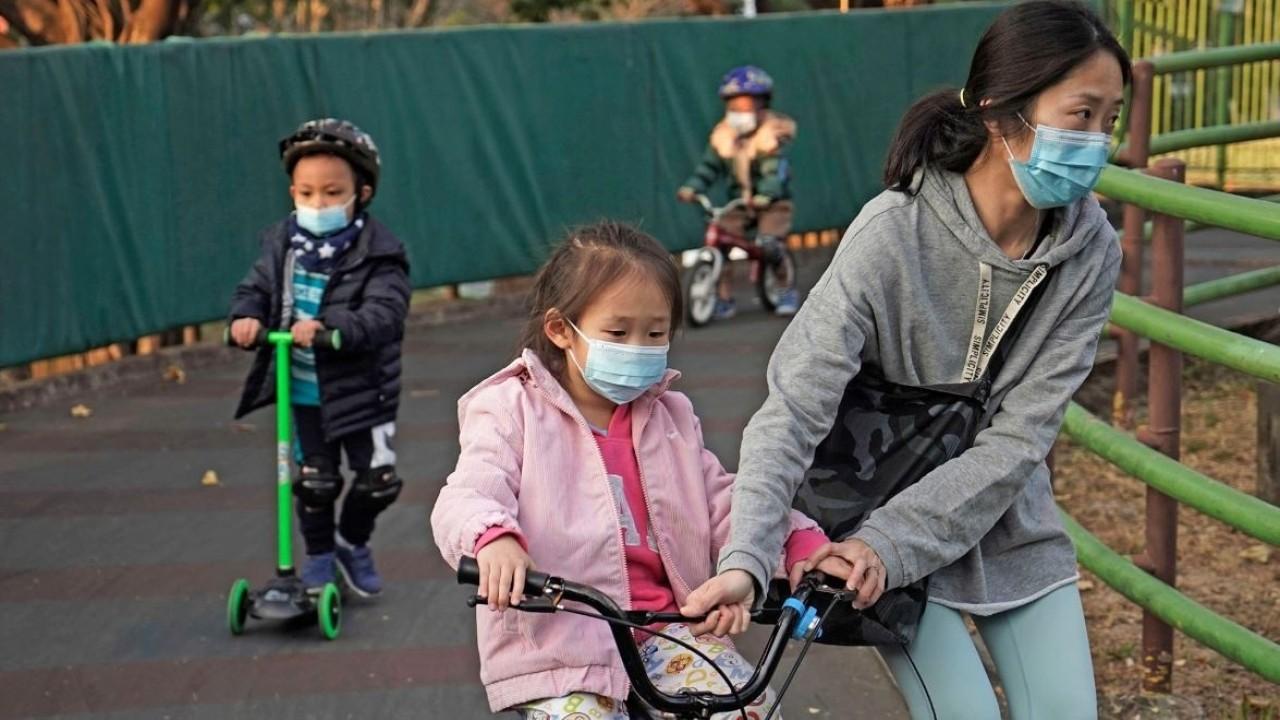How parents struggle with child care as coronavirus restrictions ease
‘Any efficiency you may have set up for your life to manage the work-life balance just got completely decimated’
Get all the latest news on coronavirus and more delivered daily to your inbox. Sign up here.
The coronavirus pandemic has put a strain on working parents unlike anything else.
When nonessential businesses, schools and day care centers were closed, many parents had to figure out how to continue working full-time remotely while simultaneously helping their children with distance learning and caring for them during the day.
Now that states are starting to reopen, those working parents will have an added challenge if their employers want them back in the office.
Their children won’t have a place to go during the day while day care centers remain closed and summer camps are still deciding how and when they’ll reopen.
HOW TEACHERS ARE SURVIVING CORONAVIRUS AND DISTANCE LEARNING
Kate Lacroix, from Boulder, Colorado, has two children, 15 and 6, and is the chief marketing officer at a parent company with six businesses in its portfolio.
Even before the pandemic, she worked remotely from her home office, but things got difficult when her kids were sent home for distance learning.
“I just found it tremendously anxiety-producing because I saw the writing on the wall,” Lacroix told FOX Business. “They were gonna send these kids home with computers and want parents to engage in remote learning, which I think theoretically is really nice, but how in the world are we supposed to do that while we're also working full time? So that's just felt incredibly stressful.”
On top of that, Lacroix added, systems she had in place, like having Instacart on a delivery schedule, have gone completely out the window because of the high demand and resulting backlog caused by the pandemic.
“Any efficiency you may have set up for your life to manage the work-life balance just got completely decimated,” she said. “You just had to start all over again.”
DRIVE-IN MOVIE THEATERS REOPEN AS CORONAVIRUS RESTRICTIONS EASE
For Elizabeth Harz, the CEO of caregiver platform Sittercity, the pandemic has practically taken away all her free time. Though she has friends who don’t have kids who are spending their time “learning Mandarin and baking bread like crazy,” she said it’s much different for parents.
“The reality for me personally and I think most parents, you literally get up at the crack of dawn to walk the dog, get breakfast ready, try to take a shower before the day starts,” Harz told FOX Business. “You get your kids ready for school. You're helping them with their school work. You're trying to maintain a normal work schedule, which, you know, if you can't get it done during the day, then you're back on right after you feed them dinner. The dishes, the laundry, it's just, it never ends. I mean I've never been so happy to go to bed at night.”
“There's just never any break from that,” she added.
STAYCATIONS DURING CORONAVIRUS ARE BEST IN THESE 10 US CITIES
Lacroix decided that, in order to maintain her productivity at work, she needed to hire an au pair for three months to care for her 6-year-old, while her older daughter went to stay with her dad.
“The priority was to be able to be on every conference call, to be able to keep my productivity up, to be able to think without disruption,” she said. “I feel like until he got here, my child was subsisting on eight hours of TV a day and all the candy I could feed her. And this has been a solution. But … it was expensive and I did have to move money around to make it happen.”
Lacroix isn’t the only working parent making sacrifices. Several parents told Bloomberg that they had to cut back their work hours in order to manage child care.
Other parents have looked to services like Sittercity and Care.com to find caregivers for their children.
Both websites told FOX Business they’ve seen a spike in demand from parents, as well as an increase in caregivers who are otherwise out of a job for the summer including coaches, camp counselors and teachers.

As employers start asking their workers to return to the office, working parents are going to have a difficult time without child care centers open. (iStock)
In some cases, parents prefer hiring an in-home sitter because even if child care centers did reopen, they want to be able to control what their children are exposed to, Care.com CEO Tim Allen said.
“They are concerned about the other families, the exposure circles, what they’re putting their children into the environment of,” Allen told FOX Business. “So they're turning to Care.com to find affordable in-home care because they can control all of the elements, all of the compliance elements.”
HOW MUCH DO INSTACART SHOPPERS MAKE?
Another way for parents to get a quick break, even without bringing someone into their home, is using virtual sitting. Sittercity started promoting the digital service after Harz paid one of her sitters to have an online session with her children so she and her husband could take a break.
Harz said one of her colleagues also did something similar and the two realized that other parents probably wanted a similar service.
“The folks who have taken advantage of it as just another tool during this unusual time have really enjoyed it,” Harz said, adding that relatives who are available can also help out virtually with kids.
During a virtual sitting session, sitters -- or relatives -- can play games, help with homework, have a dance party or just chat with the kids, Harz said. Overall, it’s just like regular babysitting -- but with the restriction of not being able to physically monitor the children.
Harz also suggested that parents could consider hiring a caregiver to organize a DIY summer camp for their children, or, if they feel comfortable, with a few of the neighborhood kids, too.
“I think tools like virtual sitting or as restrictions ease a bit and people expand their bubbles a little bit this summer, it's incredibly helpful for the parents,” Harz said. “Also very helpful for the sitters. They're trying to make money and be able pay their bills in a very difficult time when there's not as much work as there used to be.”
“And then lastly, you can't forget the kids,” Harz added. “I think they really miss, obviously, their friends and their sports and all of that, but they miss other adults. They miss their teachers, they miss their coaches, they miss their swim instructors.”
GET FOX BUSINESS ON THE GO BY CLICKING HERE
In some places, employers are even stepping up to help their workers with child care. Allen said that Care.com’s employee benefits arm, Care@Work, has also seen a spike in interest from companies.
“Employers are starting to come to the table and really want to find solutions for their employees during work at home, during the COVID crisis and find out-of-the-box solutions that they normally wouldn't offer as just a kind of baseline benefit,” Allen said.
“Child care was an issue before the COVID crisis, right?” Allen added. “Affordable, accessible child care has always been present in our society. Now it's exacerbated that issue. And so employers are really having to be the one on the forefront of finding solutions for their employees.”
In Lacroix’s case, there has been “a spirit of understanding” from her company, but she said she also feels she’s still expected to get everything done.
“I think there is also this underlying, unspoken -- not just with my company, but just with the nature of work -- that you’re going to get it done,” she said. “And so that’s where the stress comes in. And I just don’t know why more politicians aren’t talking about how to solve the issue of kids potentially being home.”
She added that particularly for women, there’s a subtle assumption that “they’ll take care of it or they’ll figure it out or they’ll juggle [it].”
“I have a sense among my colleagues and girlfriends [of] just growing resentment for a lack of addressing this head-on,” Lacroix said.
CLICK HERE TO READ MORE ON FOX BUSINESS
For now, Lacroix has the au pair to help her. Though he’s been great, he’s leaving on July 7 and Lacroix doesn’t know what she’s going to do when he’s gone.
“I can see stringing maybe a month together, but what about the fall?” she said. “What are parents going to do who work? And will there be any favoritism with people who work who don't have children and who can be more readily available? How do we account for that fairness?”




















